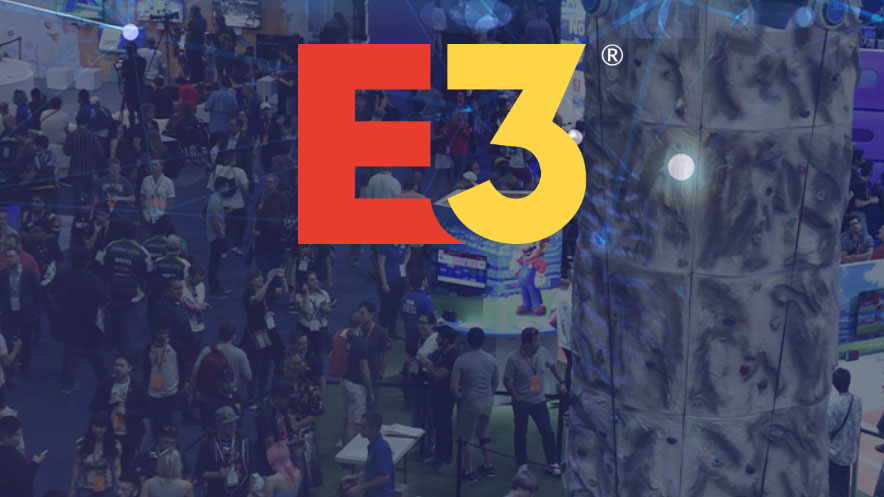Why E3 2020 being cancelled may actually be good news for game developers
The pitfalls of the perfect E3 demo

Sign up for breaking news, reviews, opinion, top tech deals, and more.
You are now subscribed
Your newsletter sign-up was successful
It’s the biggest blowout in the gaming calendar, but this year there’s going to be a conference-shaped hole in gamers' schedules. E3 2020, the gaming industry’s giant get together in LA, has been cancelled due to fears of the spread of the COVID-19 coronavirus.
The announcement was hardly shocking given the current status of the pandemic, but it’ll come as a big blow to the gaming community, which has celebrated E3 for nearly 25 years – 2020 being the first time the show has not taken place.
It’s an opportunity for developers and publishers to share information on their latest games, gathering hype from the press and, more recently, letting the public in too to get an early look at what will be gracing their computers and consoles in the coming months and years.
- PS5: everything you need to know
- Xbox Series X: what's in store from Microsoft's next console?
- 2020's most anticipated games
However, recent E3 shows have called the event’s relevancy into doubt. Increasingly, large gaming announcements are made independent of E3, with some companies choosing not to exhibit at the show entirely. On the eve of its reveal of the PlayStation 5, Sony stated that it would not be attending E3 2020 (prior to the current health scare), while Nintendo has for years preferred to host its own web stream rather than an E3 conference (though it always has a substantial presence on the show floor). And so, it seems, will everyone else this year.
Building a stand, sending teammates to the venue – it all adds up as a costly gamble for developers. But one thing costs perhaps more than anything else – time. And E3 2020’s cancellation as a result may prove a godsend to overstretched teams.
Demo crunch
The games industry in recent years has opened up about its damaging crunch culture, where staff are encouraged (if not forced) to work painfully long hours in order to get a finished game out to shops in time for a deadlined release date. Attendance at E3 can then dictate some of the worst crunch imaginable, as developers scramble to pull together a polished “vertical slice” of gameplay for a title that’s months away from completion.
It can be incredibly stressful – so much rests on that first showing of a game, and the turn around time to get even a few minutes of gameplay in a ready state can be brutal. Mess it up, and it can be hard to recover the lost hype a game was intending to generate.
Sign up for breaking news, reviews, opinion, top tech deals, and more.
“From a pure development point-of-view, an E3 demo tends to be a massive distraction,” designer Sam Bass, who’s worked on E3 demos for Star Wars: Force Commander, Medal of Honor: Rising Sun, Goldeneye: Rogue Agent, told Kotaku. “You are derailing a good chunk of your team for 1-2 months of what is often essential development time and often leaving them pretty burnt out after the fact.”
The E3 demo is also arguably smoke and mirrors as to what the final product will turn out like. Think back to the reveal of Bioware’s Anthem – a breathtaking glimpse at a shared-world sci-fi shooter with jetpacks… that turned into one of the dullest online games around come launch. And even more notorious was the incredible demo for Gearbox’s Aliens: Colonial Marines, which purported to be a stunning, filmic recreation of one of the greatest action movies of all time… but shipped as a buggy, ugly, half-finished mess. On both occasions, neither proved representative of the finished product.
There’s the possibility of course that the work expected to be put in to a demo will instead shift to crafting a sumptuous trailer – itself a significant task and one that is carefully stage managed. But at least this comes without the fear that a live demo, with its potential for bugs and crashes, brings with it.
And so with no E3 deadline to scramble for, it may prove a surprisingly fruitful summer for game developers. They’ll be able to focus on what really matters – making the best game they possibly can, rather than fine tuning a tiny slice of it. And we should all end up with better games – and less overworked teams – as a result.
- E3 2020: what you need to know following the cancelation

Gerald is Editor-in-Chief of Shortlist.com. Previously he was the Executive Editor for TechRadar, taking care of the site's home cinema, gaming, smart home, entertainment and audio output. He loves gaming, but don't expect him to play with you unless your console is hooked up to a 4K HDR screen and a 7.1 surround system. Before TechRadar, Gerald was Editor of Gizmodo UK. He was also the EIC of iMore.com, and is the author of 'Get Technology: Upgrade Your Future', published by Aurum Press.